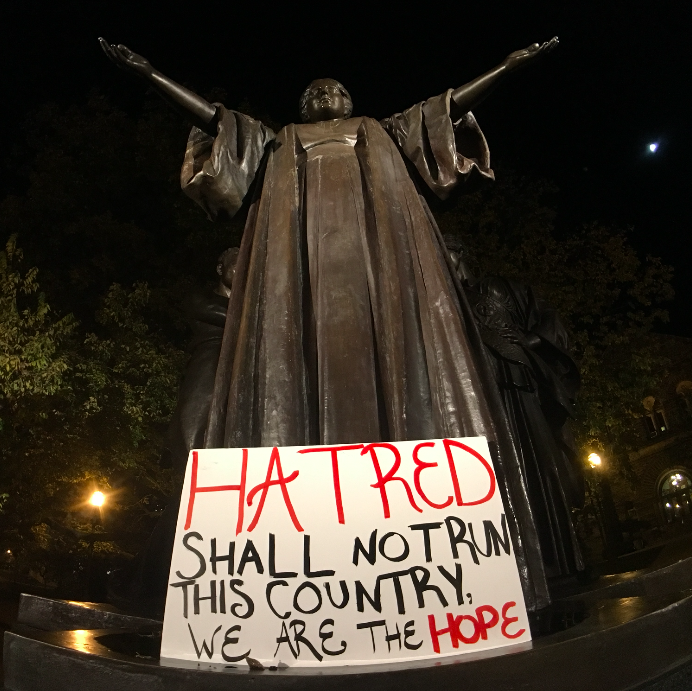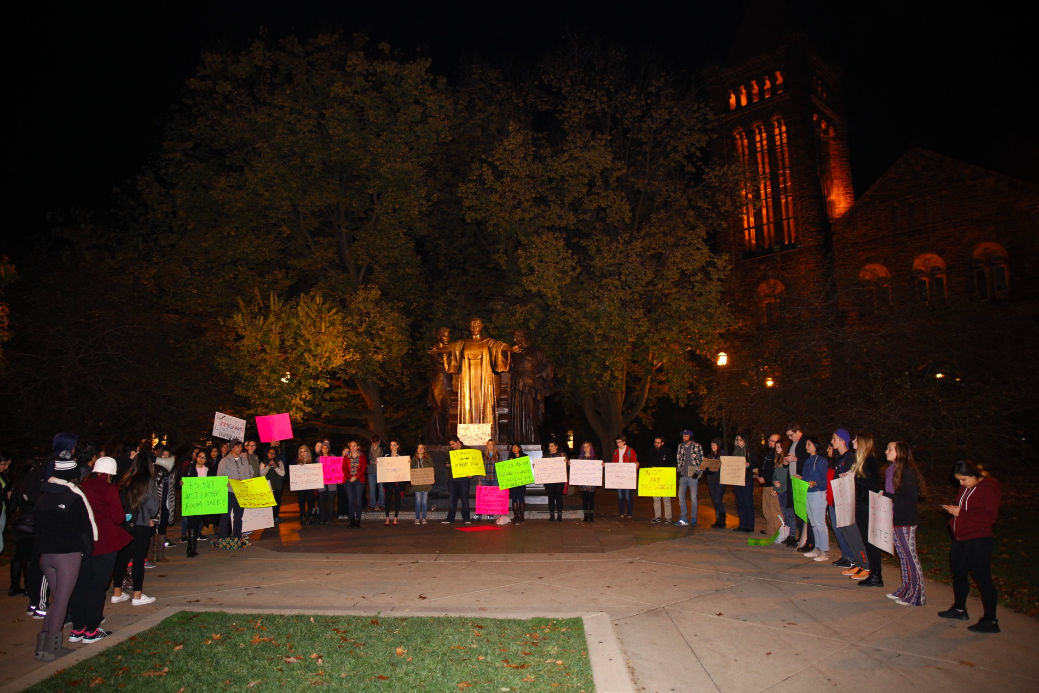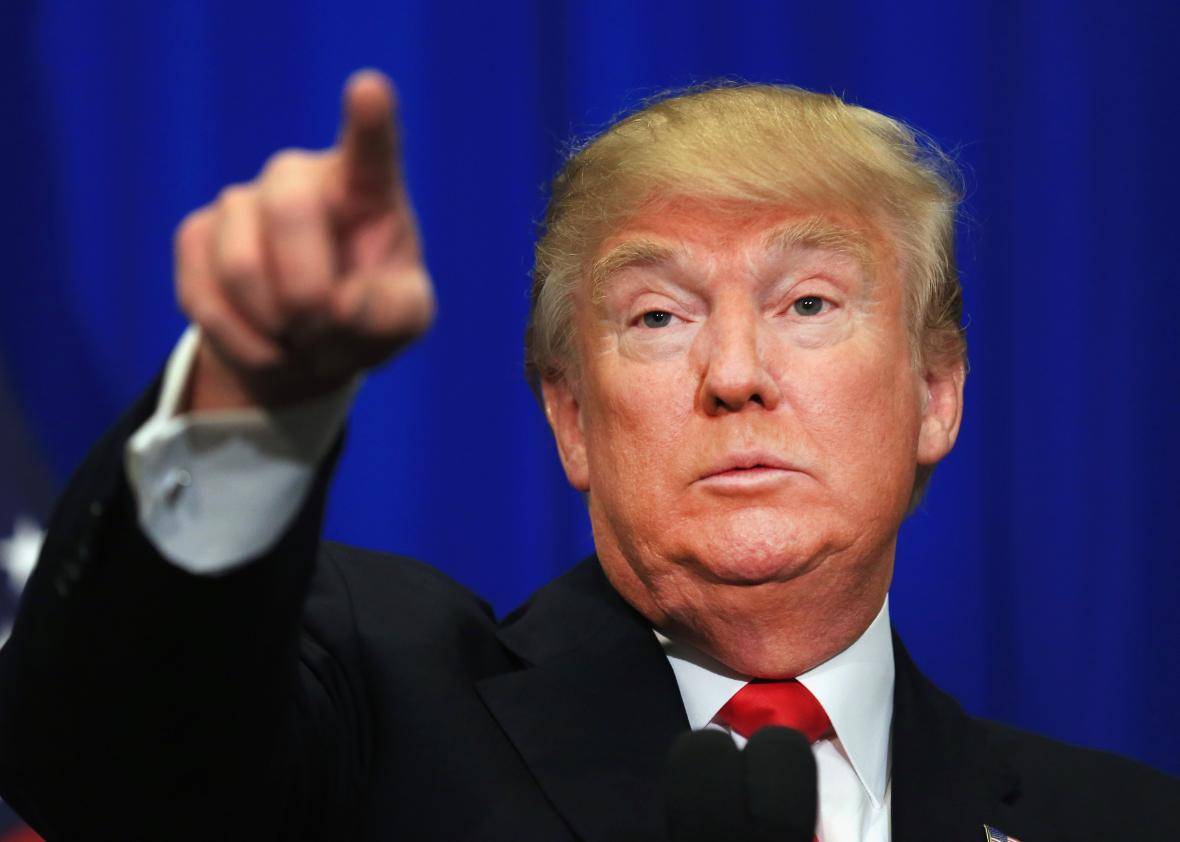Tolerance is a tricky concept to pin down, particularly in times of strong political division like what we now face with Donald Trump’s election to the presidency.
American liberals have long debated what tolerance means to their ideology; they have toiled to conclusively define it. Does tolerance mean you tolerate someone else’s intolerance, or is intolerance something that should never be tolerated?
For example, should liberals recognize the value systems of conservative Islamic countries, like Saudi Arabia, that limit the rights of the woman and not work to change them? Or, should they fight for furthering women’s rights in such countries?
Questions of this sort apply at many scales—at the international level, national level, regional level, and so on, down to the local. The discord at every level, but particularly at the national and local levels, in the wake of this election season exemplifies this.
The Trump-Clinton election was the tightest we’ve had since Bush-Gore in 2000. In fact, the conditions of these two elections mirror one another; in both cases, the to-be-president won the electoral vote by a slight margin despite losing the popular vote by roughly 1.7 million.
Just like with George W. Bush, the legitimacy of Trump’s win has been called into question.
However, a key discrepancy between Trump-Clinton and Bush-Gore is the level of protest that resulted from the election. With Bush, the issue was with the electoral college and whether it or the popular vote should decide the president. With Trump, it’s both the former, plus the atmosphere that detractors say he created on the campaign trail.
Hillary Clinton supporters—or, perhaps more aptly, those in the “anyone but Trump” boat—have called the comments he made during his campaign regarding Hispanics, Muslims and those of Middle Eastern descent, and minorities in general insensitive, marginalizing, and prejudiced.
 Millions of protesters have taken to the streets in major cities across America. They can be seen waving signs reading “not my president,” “love trumps hate,” and the like. Champaign-Urbana is no exception to this, with University of Illinois students rallying last Friday on campus to protest what they view as hateful rhetoric by the President-Elect.
Millions of protesters have taken to the streets in major cities across America. They can be seen waving signs reading “not my president,” “love trumps hate,” and the like. Champaign-Urbana is no exception to this, with University of Illinois students rallying last Friday on campus to protest what they view as hateful rhetoric by the President-Elect.
This student demonstration was responded to by the U of I Chancellor Robert Jones, who urged calm and for Americans to “take a deep breath” in the wake of the shake-up in Washington.
Jones’ stance is one adopted by many—including ardent liberals and anti-Trump voters—and it is an unfortunate truth that such people are being treated like bad guys by their compatriots. Spend five minutes on social media; it’s a war zone right now.
“When you, as a white person, post statements today that everyone should ‘move on,’ ‘move forward,’ ‘stop spreading hate,’ ‘show more love,’ or ‘be united as a country,’ you are showing your privilege,” writes a poster on Facebook.
Now, here arises the aforementioned conundrum of tolerance. Is it intolerant for someone to be mad at someone else for their promotion of tolerance and calm?
As some liberals try to mend the gashes in our nation by urging tranquility and working to find shared interests with conservatives and Trump backers, others continue to further tear open the wound and create new cuts among their ideological friends by directing their anger and discontent in the wrong place.
Some of these ongoing protests are turning anti-conservative and even anti-moderate and anti-moderate-liberal rather than simply anti-Trump, as they should be.

Protests get no one anywhere, save when their focus is clear and properly aimed. In this case, each anti-Trump protester must direct their anger and discontent right at Trump, his compadres, and his policies, rather than the voters who won him his first elected position.
By no means are the non-protesting liberals advocating for closing our borders and creating a registry of Muslims, and so on, as Trump proposes. They simply intend to take the next two years in stride, when they hope to see a big, blue—metaphorical—wall built around the Capitol Building.
In other words, they intend to tolerate the intolerance that may rear its ugly head with Trump as President, but once the tables turn back in their favor and they’re in a position to fight back with actual legislation and policy their tolerance goes out the window.
They intend to use the system against the Republican hegemony, let them dig themselves into a hole that alienates them to the American people and then bury them within it.
Patience, everyone.








